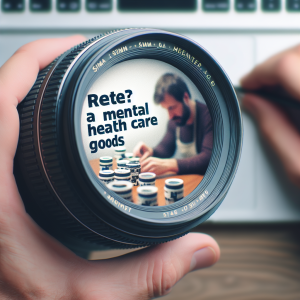Blockchain and the Retail Industry: The Revolution of Transparency and Efficiency
Blockchain has led a revolution in the retail industry, providing a technology platform that enhances transparency, improves security, and optimizes all processes from supply chains to payments. Discover how blockchain is changing consumer behavior and how businesses are adapting to this shift.
What is Blockchain? An Overview of Technology and Applications
Blockchain is a distributed data storage technology that allows users to record transactions transparently and securely. Through the connection between nodes in the system, blockchain not only helps authenticate transactions but also ensures that data cannot be easily altered. This is especially important in the retail industry, where customer trust and product authenticity are crucial.
The Current Retail Industry: Challenges and Opportunities
The retail industry today faces many challenges such as high operating costs, counterfeit goods, and fierce competition from e-commerce platforms. However, these challenges also present opportunities for technological innovations, including blockchain, to meet the increasing demand from consumers for transparency and safety in shopping.
Why is Blockchain Important for the Retail Industry?
Blockchain offers many benefits to the retail industry, such as minimizing fraud, improving product traceability, and enhancing customer experience. The adoption of blockchain not only helps businesses reduce risks but also improves operational processes, thereby increasing trust between businesses and consumers.
Applications of Blockchain in Retail
Blockchain in Supply Chain: Maximum Transparency and Efficiency
The operation of the supply chain often struggles with tracking and verifying product origins. Blockchain allows all stakeholders in the supply chain to connect and trace product origins more easily, thus creating a transparent and reliable platform for consumers.
Electronic Payments: Blockchain Brings Security and Convenience
Blockchain not only supports transaction recording but also enables secure and fast payment methods without intermediaries. This saves costs while also reducing transaction times, facilitating both businesses and customers.
Smarter Inventory Management with Blockchain
With the traceability feature that blockchain provides, businesses can manage inventory more effectively, thereby minimizing waste and enhancing production capabilities. Retailers can easily identify products that are in short supply or excess without having to go through multiple levels of verification.
Customer Loyalty Programs on Blockchain: Personalizing Experience
Blockchain enables the implementation of loyalty programs without worrying about personal information security. By recording transaction history, businesses can personalize offers and customer care more effectively, enhancing customer loyalty and satisfaction.
Anti-Counterfeit: Blockchain Protects Consumers and Brands
The widespread occurrence of counterfeiting affects not only consumers but also causes severe damage to brands. Blockchain can help verify the origin of products and ensure that consumers are purchasing quality goods, thereby protecting both customers and brands.
NFT Applications in Retail: Creating Unique Experiences
NFTs (Non-Fungible Tokens) are opening a new horizon for the retail industry. Businesses can create exclusive digital products, offering customers impressive shopping experiences and a connection to the products they own.
Benefits of Blockchain in Retail
Enhancing Transparency and Reliability
Blockchain provides a transparent method for transactions and goods management, helping to enhance the reliability of businesses in the eyes of consumers.
Reducing Operating and Transaction Costs
Eliminating unnecessary intermediaries helps businesses save significant costs in goods exploitation and transactions.
Improving Efficiency and Speed
Blockchain simplifies transaction processes, thereby reducing maximum time for commercial activities and increasing productivity.
Enhancing Customer Experience
Customers can easily access detailed product information, thereby building trust and enhancing their shopping experience.
Data Security and Fraud Prevention
Transactions recorded securely on blockchain help protect businesses’ data, preventing risks associated with fraud and cyberattacks.
Challenges and Barriers
Challenges in Implementing Blockchain in Retail
The implementation of blockchain is not just a technological change but also faces many challenges from design to employee training and changing organizational mindsets.
The Complexity of Technology: Overcoming Perceptual Barriers
Many businesses still do not fully understand or trust blockchain. Educating and raising awareness about blockchain is necessary to fully exploit its potential.
Scalability: Ensuring Performance as Scale Increases
Blockchain technology needs to be optimized to ensure performance as transaction volumes increase, especially in the retail sector where transaction volumes are high.
Legal Issues: Legal Framework for Blockchain in Retail
The legal frameworks around blockchain are still developing. Businesses need to pay attention to current legal regulations to avoid risks during blockchain implementation.
The Future of Blockchain in Retail
Blockchain and the Metaverse: Opening a New Era of Shopping
The metaverse is rapidly becoming part of the consumer shopping experience. The combination of blockchain and the metaverse will create unique and flexible experiences for customers.
DeFi (Decentralized Finance) Changing Payment Methods in Retail
DeFi solutions are opening up non-traditional payment methods, enabling consumers to pay directly to suppliers without intermediaries.
Predictions and Trends: How Will Blockchain Shape the Retail Industry?
With the continuous development of technology, it can be predicted that blockchain will play an increasingly important role in the retail industry, shaping new ways of transaction, interaction, and goods management.
Advice for Businesses: Where to Start Applying Blockchain?
Businesses should start with small and easily deployable applications before progressing further in blockchain implementation, thereby gradually building a solid foundation for development.
Case Study
Case Study 1: Application of blockchain in supply chain management at [Company Name]
[Company Name] has achieved significant success by applying blockchain in tracking supply chains, thereby saving costs and enhancing transparency.
Case Study 2: How [Company Name] Increased Sales through a Blockchain-based Loyalty Program
[Company Name] successfully implemented a blockchain-based loyalty program that allowed for personalized services and enhanced customer loyalty.
Contact us today for tailored consultation!
Intage Vietnam: Your trusted partner for comprehensive and effective market research solutions.
📞 (+8428) 3820 5558
🌐 https://intage.com.vn/
🏢 45 Vo Thi Sau, Da Kao Ward, District 1, Ho Chi Minh City, Vietnam





